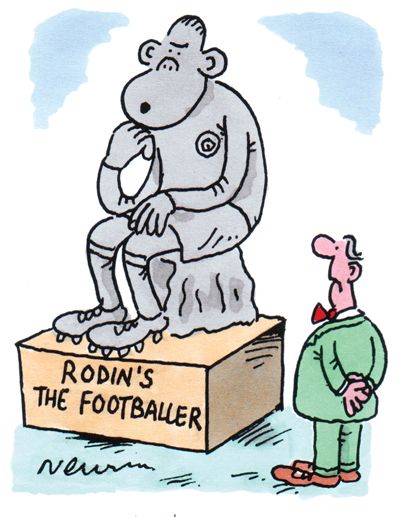
- A joke candidate lampooning the supposed ineffectiveness of presidents of the National Union of Students has been accepted on to the union’s ballot. Samuel Gaus, democracy and communications officer at University College London Union, is running for president as “nominated bearer of The Inanimate Carbon Rod”. The stunt is a tribute to the green cylinder named Worker of the Week - ahead of Homer Simpson - at Springfield’s nuclear plant in an episode of The Simpsons. In its manifesto, Carbon Rod says that doing nothing would achieve more than recent NUS presidents, who are accused of “selling out” to the government. Initially barred by electoral rules, Mr Gaus was added to the ballot on 30 January after agreeing to remove from campaign material Simpsons images that allegedly breached copyright laws.
- Coughing during a classical music concert is often a deliberate expression of disapproval, a study has suggested. Research by Andreas Wagener, professor of economics at the University of Hanover, found that people cough twice as much as is normal during a classical music concert, with many doing so to register disgust, The Independent reported on 30 January. The volume of coughing rises in slow, quiet moments of a performance or during unfamiliar or complex pieces, the research found. People might hack away to “test unwritten boundaries of courtesy, to comment on the performance, or simply document one’s presence”, the work posits.
- Russell Group universities are killing off key subjects such as economics and philosophy at secondary schools, the head of a top grammar school has claimed. In an open letter to Wendy Piatt, the group’s director general, Hilda Clarke, head of Tiffin School in Kingston upon Thames, said the demise of several subjects had been caused in part by the group’s promotion of traditional academic A levels, known as “facilitating subjects”, The Independent reported on 31 January. However, many students were no longer choosing disciplines outside the Russell Group’s list for fear of harming their university prospects, said Ms Clarke. The trend could lead to subjects including music, politics and government, economics and art being wiped from the syllabus at some schools, she claimed. “Albeit with initial best intentions, we feel that you have inadvertently become a pawn in some kind of political agenda,” Ms Clarke said in the letter.
- Formidable on the pitch, Wayne Rooney and his Manchester United teammates have now proved their worth off it as well by beating PhD students in a brain test, The Times reported on 1 February. A study involving the entire Old Trafford squad found that the footballers performed better in some cognitive tests and were quicker to pick up new skills than the average doctoral student. Elite footballers seem to “hyper-focus” on a task, enhancing their learning ability, said Jocelyn Faubert, professor of visual perception and presbyopia at the University of Montreal, who led the study. “They may not be able to express themselves verbally or be good with numbers, but intelligence comes in many varieties,” Professor Faubert said of his multimillionaire lab rats.
- News that Richard III’s remains had indeed been exhumed from a council car park proved an unparalleled advert for the University of Leicester. With its appealing mix of amiable historical sleuthing and sexy CSI-esque DNA evidence, the story dominated newspapers and 24-hour news channels on 4 February, with hundreds of Twitter wisecracks feeding the media buzz. “A hearse! A hearse! My kingdom for a hearse,” joked one wag, while Leicester scholars offered their own pun: the hunch-backed monarch was “not a below- par king - just below parking”. However, some commentators, such as The Guardian’s Charlotte Higgins, did not join the fun, complaining that the media frenzy was worrying because content-lite but PR-friendly discoveries - aka research with “impact” - should not be considered the apex of scholarly achievement. Such qualms will probably not vex the university’s management as they bask in the glowing global coverage, even if an epic press conference announcing the findings did not quite dominate Britain’s airwaves thanks to the implosion of Chris Huhne’s political career.